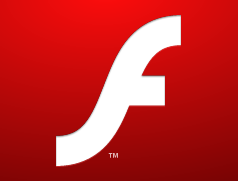
One of the pioneers of modern artificial intelligence development who has been called the "Godfather of AI" is raising the alarm about the dangers of letting this technology get out of control. That person is Geoffrey Hinton. Until recently he worked at Google on AI projects, but not anymore.
As The New York Times reports, Hinton has departed Google, where he worked since 2013. Before his time at the company, he co-authored a paper in 1986 that proposed an algorithm for neural networks. He is considered one of the leading developers of deep learning, and, along with two other researchers, won the 2018 Turing Prize for his work.
However, Hinton is now concerned about how AI development has gone much further and faster than he previously predicted. The sudden launch of chatbot AI programs like ChatGPT, Microsoft's Bing Chat, and Google's own Bard could be the first step in AI becoming truly more intelligent than the humans that programmed it. He stated:
"The idea that this stuff could actually get smarter than people — a few people believed that. But most people thought it was way off. And I thought it was way off. I thought it was 30 to 50 years or even longer away. Obviously, I no longer think that.”
In the immediate future, Hinton believes AI could make realistic-looking "deep fake" imagery that could cause problems with people not being able to tell what's fake and what's real. Down the road, he thinks AI could not only eliminate jobs but even get rid of humanity itself, if AI learns to read and write code on its own, without human intervention.
The New York Times reports that Hinton spoke to Google CEO Sundar Pichai last week before his official departure, but there's no word on what they discussed.
In the NYT today, Cade Metz implies that I left Google so that I could criticize Google. Actually, I left so that I could talk about the dangers of AI without considering how this impacts Google. Google has acted very responsibly.
— Geoffrey Hinton (@geoffreyhinton) May 1, 2023
In a Twitter post today, Hinton stated that he is not trying to criticize Google, which he believes has "acted very responsibly" in regard to AI development. Rather, he felt that leaving the company would allow him to "talk about the dangers of AI without considering how this impacts Google." Jeff Dean, who was recently named Google's chief scientist, responded to the article by saying the company is "committed to a responsible approach to AI."

















4 Comments - Add comment